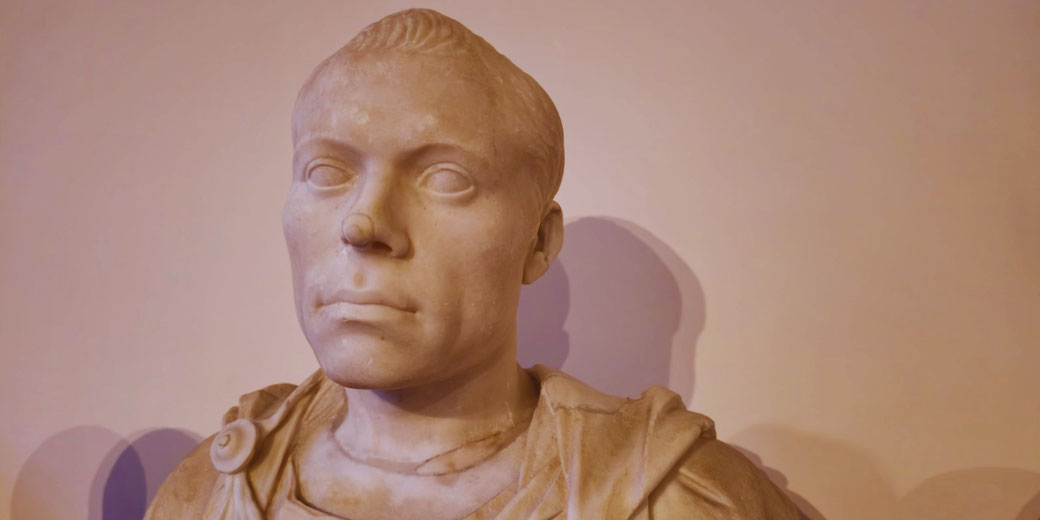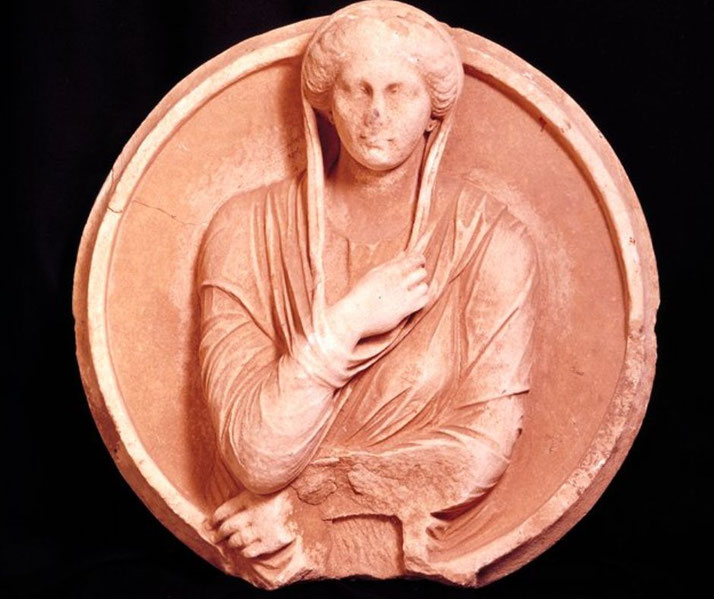Patria Potestas: Why Roman fathers had the power of life and death over their families

In ancient Rome, there existed a foundational social concept that governed the intimate corners of daily life: Patria Potestas, or "the power of the father."
This age-old Roman principle granted the male head of the household an almost god-like authority over his family, shaping the social fabric of one of history's most influential civilizations.
But what exactly did Patria Potestas entail?
How did it influence the lives of men, women, and children in ancient Rome?
And how did this power evolve over time, reflecting the broader changes in Roman society?
Why was this law created?
The concept of Patria Potestas was deeply rooted in the Roman Republic, a period that spanned from the 6th century BCE to the 1st century BCE, and continued to be influential throughout the Roman Empire.
During these times, Roman society was highly stratified, with a rigid class system that included senators, equestrians, plebeians, and slaves.
The family unit was a microcosm of this hierarchical structure, and the father's role within the family was seen as analogous to that of a ruler within the state.
This was not merely a social construct; it was codified into Roman law, which was itself an intricate system that governed everything from commerce and military service to religious practices and family life.
What could Roman fathers do according to this law?
This authority was both personal and proprietary, meaning that the father had the right to make decisions that affected the personal lives of his family members as well as their property.
For example, the paterfamilias had the authority to arrange marriages for his children, often for political or economic gain rather than personal compatibility.
He could also decide on their education, professions, and even their place of residence.
One of the most striking aspects of Patria Potestas was the father's right to make life and death decisions for his family members.
In extreme cases, this could include the power to sell children into slavery or even to kill them, although such actions were generally frowned upon and could lead to social ostracization.
The father's authority extended so far that a child born into a family was considered to be under the father's ownership, much like property.
This concept was not merely symbolic; it had real legal implications. For instance, any income or property acquired by a child was technically considered to belong to the father.

How many examples are there of the law's use?
While specific case studies from ancient Rome are not as well-documented as one might hope, the concept of Patria Potestas is frequently referenced in various historical texts, legal documents, and even plays and poems of the era.
One of the most famous examples can be found in the writings of the Roman historian Livy, who recounts the story of Lucius Junius Brutus.
Brutus led the revolt against the Roman king Tarquin the Proud and was instrumental in the establishment of the Roman Republic.
However, when he discovered that his own sons were involved in a plot to restore the monarchy, Brutus, in his capacity as a father and a consul, ordered their execution.
This act was seen as the ultimate expression of Patria Potestas, where the father's authority and responsibility for his family were exercised to the fullest extent, even at the cost of personal tragedy.
Another example comes from the legal realm, specifically the Twelve Tables, an ancient code that formed the foundation of Roman law.
One of the laws explicitly gave the father the right to "discard" a newborn if it was deformed, essentially allowing for infanticide under the umbrella of Patria Potestas.
While this may seem shocking by modern standards, it was considered a legal and socially acceptable practice at the time, further emphasizing the extent of the father's authority over life and death within his family.
In the realm of literature, the Roman playwright Plautus often depicted scenarios involving Patria Potestas in his comedic plays.
Fathers are frequently portrayed as the ultimate decision-makers in matters of their children's marriages and finances.
While these plays were meant for entertainment, they also reflected the social norms of the time, providing insights into how deeply ingrained the concept of Patria Potestas was in everyday Roman life.

The impact of Patria Potestas on women and girls
While the concept of Patria Potestas primarily empowered men, it also had significant implications for women and their roles within the family and society at large.
In ancient Rome, a woman's life was largely defined by her relationship to men—first her father and then her husband.
Upon marriage, a woman would transition from the authority of her father to that of her husband, a legal shift that was more than symbolic.
The husband, as the paterfamilias, had the legal right to manage his wife's property and make decisions on her behalf, although the extent of this control could vary depending on various factors such as social class and individual family dynamics.
However, in some cases, women could gain a degree of legal and financial independence through "sui iuris" status, which allowed them to own property and conduct legal affairs.
This was more common among wealthier families, where women might be involved in managing estates or businesses.
Still, these were exceptions rather than the rule, and the vast majority of Roman women lived under the authority of a male family member.
The concept of Patria Potestas also had implications for the lives of daughters, who were under their father's authority until they were married.
A daughter's marriage was often arranged by her father, and she had little say in the matter.
The father could also demand a dowry from the groom's family, further emphasizing the transactional nature of Roman marriages.
Once married, the daughter would transition from being under her father's authority to her husband's, perpetuating the cycle of Patria Potestas.

Why the law changed and disappeared over time
During the early days of the Roman Republic, the father's authority was almost absolute, but as Rome transitioned from a republic to an empire, various legal and social reforms began to challenge this traditional concept.
One of the most significant changes came during the reign of Augustus, the first Roman Emperor, who enacted a series of laws aimed at strengthening the Roman family.
Known collectively as the Leges Juliae, these laws imposed certain restrictions on the father's ability to disinherit his children and encouraged marriage and procreation among Roman citizens.
While the laws were designed to bolster the traditional Roman family, they also had the effect of limiting the father's absolute authority.
The influence of Stoic philosophy, which gained prominence during the late Republic and early Empire, also played a role in the evolution of Patria Potestas.
Stoicism emphasized the rationality and moral worth of all individuals, challenging the idea that the father had an inherent right to control his family members as if they were property.
This philosophical shift was reflected in legal reforms that granted more rights and protections to children and wives, although the basic structure of Patria Potestas remained intact.
The rise of Christianity further accelerated the decline of Patria Potestas. Early Christian teachings emphasized the inherent dignity and worth of all individuals, including women and children, and challenged traditional Roman gender roles and family structures.
While the Christian Church itself had complex views on family and authority, its influence contributed to a gradual softening of the harsher aspects of Patria Potestas.
By the time of the Byzantine Empire, the concept had weakened considerably, although it was never entirely abolished.
The Byzantine legal code, known as the Corpus Juris Civilis, still included provisions that reflected the influence of Patria Potestas, but these were far less stringent than their Roman predecessors.
What do you need help with?
Download ready-to-use digital learning resources
Copyright © History Skills 2014-2025.
Contact via email
With the exception of links to external sites, some historical sources and extracts from specific publications, all content on this website is copyrighted by History Skills. This content may not be copied, republished or redistributed without written permission from the website creator. Please use the Contact page to obtain relevant permission.





